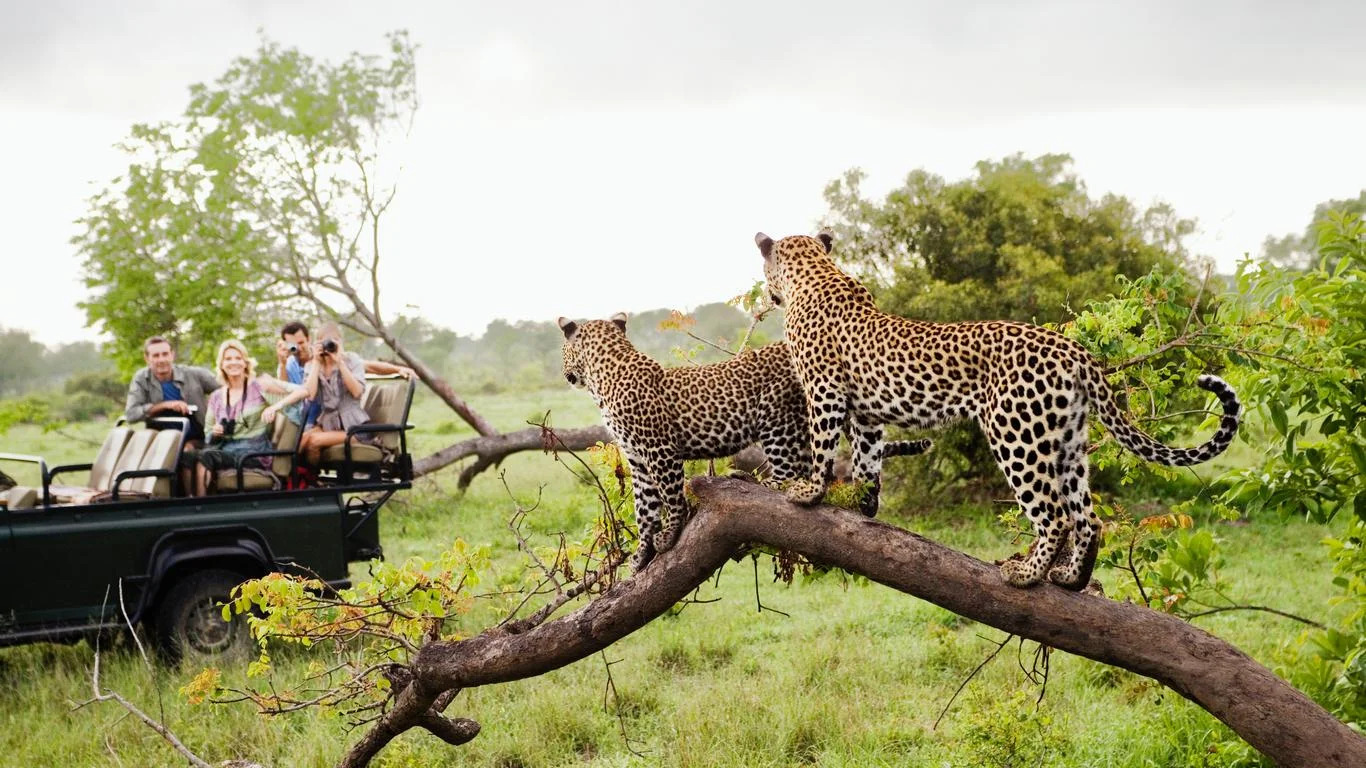Inleiding
The spring season in Kruger National Park opens up unique opportunities for wildlife enthusiasts eager to experience one of Africa’s premier safari destinations. September stands out as a month of exceptional wildlife viewing, drawing attention from travel specialists around the globe.
Optimal Weather Conditions
As winter departs, Kruger National Park transitions into a wildlife spectacle unlike any other, with optimal wildlife viewing conditions. Daytime temperatures reach a comfortable 28°C, while cooler mornings at 12°C provide ideal environments for game drives. This delightful temperature balance presents a major selling point for tour operators as they cater to clients searching for pleasant safari experiences without the oppressive heat of summer.
Unmatched Visibility
In September, the transformations of the landscape enhance visibility for wildlife sightings. With sparse vegetation and leafless trees, safari operators recognize the advantage of clear viewing opportunities. As water sources dry up, wildlife congregates around permanent rivers and waterholes, creating natural settings that consistently deliver memorable viewing experiences.
Accommodation Trends
Recent data highlight fascinating trends in accommodation preferences that savvy tour operators can leverage. Rest camps enjoy high occupancy rates of 84.2%, while luxury private lodges command average nightly prices of R9,605, albeit with lower occupancy at 72.1%. This pricing structure allows operators to strategically position various accommodation options, catering to a range of client budgets and expectations.
Infrastructure Developments
Future enhancements to the park’s infrastructure, including the opening of Masiya’s Camp at Royal Malewane, reflect ongoing investments in luxury tented accommodations. These developments align with the growing demand for conservation-focused travel experiences, appealing to discerning clients seeking luxury in tandem with sustainability.
Wildlife Dynamics in September
The behavior of wildlife in September contributes to profound predator-prey interactions that make for thrilling safari narratives. Limited water sources stress prey animals, creating a dramatic focal point for safari stories, where lions and hyenas capitalize on these conditions. Moreover, elephants display fascinating behaviors as they dig for water, offering unique photographic opportunities.
Diversity of Migration
September also heralds the return of migratory birds, such as European bee-eaters and yellow-billed kites, adding another layer of appeal. This seasonal enrichment especially attracts birdwatching groups and photography enthusiasts, widening the market appeal beyond traditional Big Five seekers.
Strategic Positioning Against Competitors
With Kenya’s Masai Mara and Botswana’s Okavango Delta vying for tourism dollars, Kruger holds an edge with its accessibility and superior infrastructure. Close proximity to Johannesburg, along with possessing malaria-free areas, creates an attractive proposition for various market segments.
Conservation Initiatives
Current conservation projects emphasize the park’s commitment to sustainability. Initiatives such as anti-poaching units utilizing drone technology address environmental concerns, while community engagement programs showcase tourism’s positive impact on local economies. Such efforts resonate with increasingly conscious travelers.
Booking Dynamics and Future Predictions
Advance booking trends suggest optimism in the market, with strong early reservations despite a modest 10% decline from the previous year. Tour operators now managing 55% of all bookings emphasize the importance of professional expertise in navigating the complexities of safari logistics.
Pricing Strategies and Accommodation Insights
Recent years have seen price hikes, with bush lodges experiencing an 11.7% increase. This upward trend in pricing reflects a robust demand across categories, allowing operators to develop predictable and strategic package offerings.
Visitor Statistics and Regional Opportunities
With nearly two million visitors annually, Kruger National Park solidifies its status as Africa’s most frequented national park. However, managing this influx requires careful planning to optimize experiences while navigating capacity constraints effectively.
Complementary Destinations
September’s timing allows operators to link Kruger experiences with regional attractions such as Namaqualand’s wildflower season or the Drakensberg mountain ranges, enhancing visitor stays and maximizing revenue potential.
Conclusie
September serves as a unique month in Kruger National Park, characterized by optimal weather, peak wildlife activity, and great accessibility. The combination of these factors positions Kruger as a premium destination, encouraging operators to showcase the richness of Africa’s wildlife heritage. Although reviews and feedback can provide insight, to truly appreciate the wonders of this wildlife experience, personal visits are irreplaceable. For seamless travel arrangements, booking with LocalsRide.nl empowers users to select drivers from verified providers at competitive rates, making informed decisions easier and showcasing a wide range of vehicle choices and additional options. Book your adventure through LocalsRide.nl and embrace the thrill of your journey!

